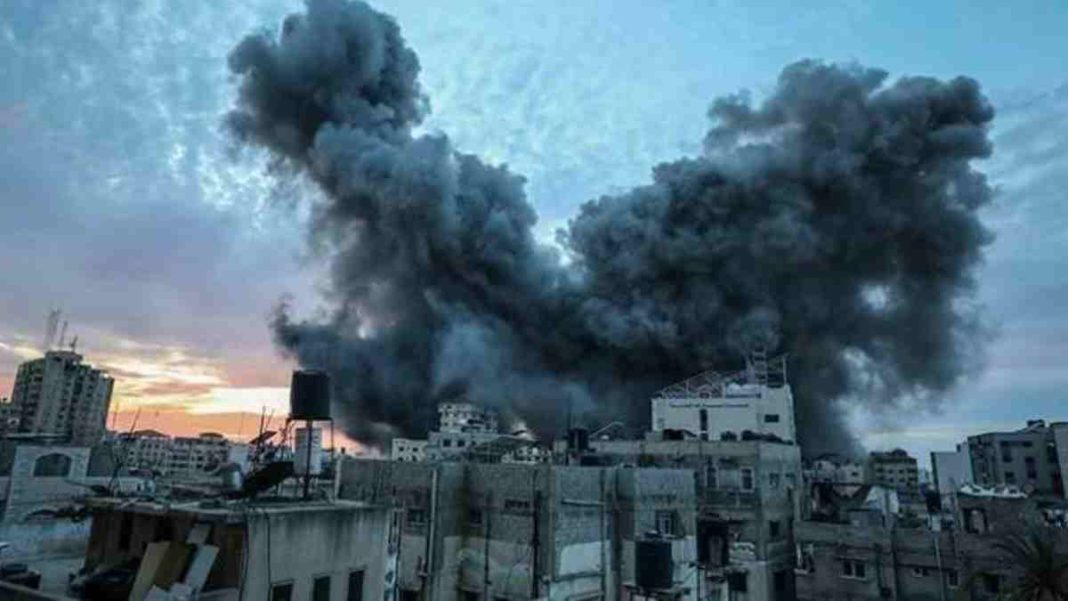ISRAEL. Jerusalem: A deadly escalation of violence between Israel and Hamas has sent shockwaves through the region, raising concerns of a widening conflict. The turmoil began when Hamas militants launched a daring raid into southern Israel, resulting in hundreds of Israeli casualties and hostage-taking in Gaza.
In a swift response, Israel initiated military operations targeting Hamas militants in Gaza, resulting in over 300 Palestinian casualties and the destruction of key Hamas infrastructure.
The situation remains volatile, with Israeli forces engaged in combat with Hamas fighters in the southern regions, and the military anticipates a protracted battle.
One of the most concerning developments in the conflict has been Israel’s airstrikes on a Hezbollah militia target in southern Lebanon, further raising the specter of a regional conflagration.
The Israeli military has cautioned Hezbollah against involvement, and while drone attacks near the northern border were reported, it remains to be seen whether Hezbollah will enter the fray.
The surprise attack by Hamas represents the most significant invasion into Israel since the Yom Kippur War, marking a grave escalation in the long-standing conflict between the two sides.
Hamas fighters launched a rocket bombardment into southern Israel, resulting in the death of at least 250 Israelis. In retaliation, Israel carried out airstrikes, leading to 18 casualties in the Beit Hanoun neighborhood.
Israeli military operations continue in multiple locations surrounding Gaza, with the Palestinian Red Crescent reporting 18 deaths due to Israeli airstrikes.
Palestinian health officials have reported 313 civilians killed and 2,000 injured in clashes between Israel and Palestinian insurgents in the Israeli-occupied West Bank.
Hamas leader Ismail Haniyeh has warned that the Gaza attack could spread to the West Bank and Jerusalem, citing Israel’s 16-year blockade of Gaza, threats against the Al-Aqsa Mosque, and normalization efforts with neighboring countries. The aftermath of the attack has left shattered glass and casualties in Sderot, southern Israel.
Israel’s response to the crisis includes measures to disrupt the military and political capacities of Hamas and Islamic Jihad, such as cutting off Gaza’s access to electricity, petrol, and commerce. The skies over Gaza have been illuminated by black smoke, orange lights, and sparks.
Western nations, including the United States, have condemned the attack on Israel. President Joe Biden defended Israel’s right to self-defense and cautioned Iran not to exploit the situation.
The U.S. aims to normalize relations between Israel and Saudi Arabia, which is viewed as a significant development in Israel’s Arab recognition efforts but raises concerns among Palestinians about the future of their aspirations for a free state.
Protests in support of Hamas have erupted in several countries, including Iraq, Lebanon, Syria, and Yemen. Demonstrators waved Palestinian flags and burned Israeli and American flags.
Hamas has claimed that its attack was motivated by intensified Israeli actions against Palestinians in the West Bank, Jerusalem, and Israeli prisons, though the incident has also been criticized as a significant intelligence lapse in Israeli history.
As tensions continue to escalate, the international community watches with apprehension, hoping for a de-escalation of hostilities and a return to peace negotiations in the region.
Also Read: Israel Proclaims “State of War” as Gaza-Oriented Missiles Strike Israeli Territory



